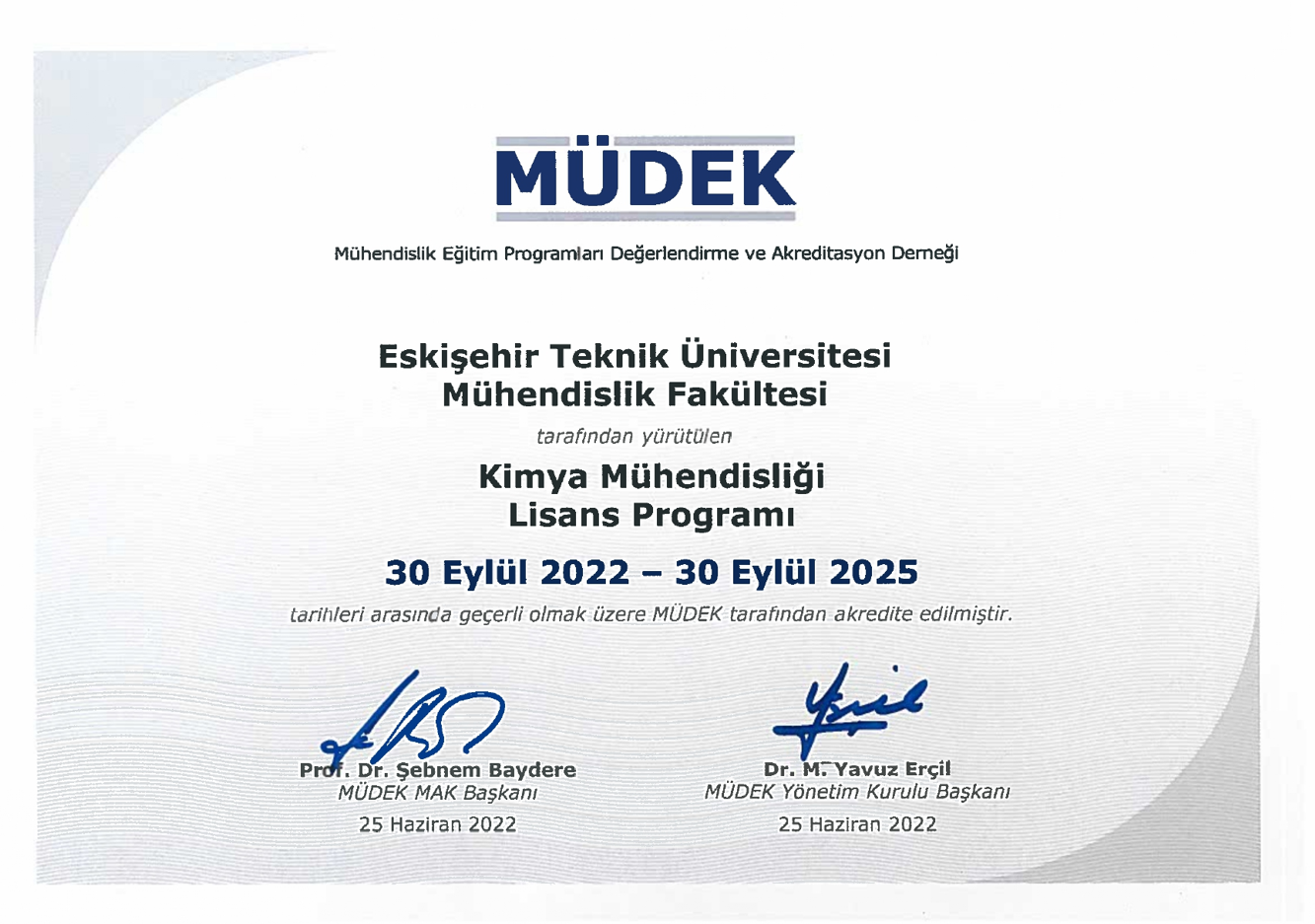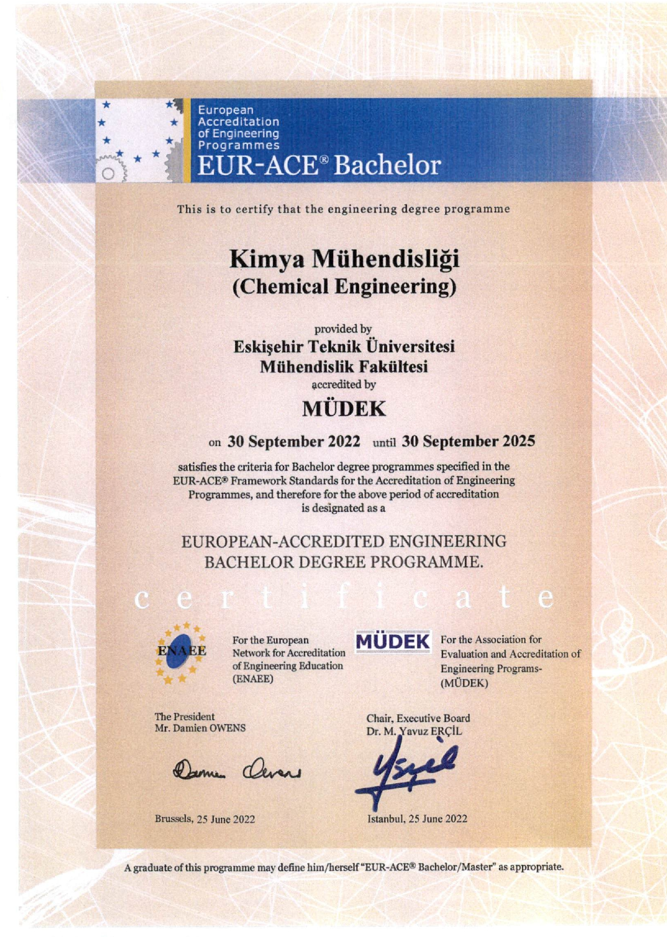MUDEK
Engineering Education Programs Evaluation and Accreditation Association (MUDEK) is an independent organization operating to contribute to improving the quality of engineering education in Turkey by carrying out accreditation, evaluation and information studies for various engineering education programs in our country.
Evaluated by MUDEK in the 2008-2009 academic year, the Chemical Engineering undergraduate program of our department was accredited for 5 years and also received the EUR-ACE (European Accreditation of Engineering Programs) label for 5 years.
Objectives of MUDEK Accreditation
The accreditation of engineering programs by MUDEK is a voluntary process, and MUDEK accredits only programs that apply to it. MUDEK accreditation aims to achieve the following objectives in order to contribute to improving the quality of engineering education in Turkey:
(a) Identifying among the applicant engineering programs those that meet the evaluation criteria.
(b) By announcing these programs, informing the society, student candidates, student counselors, student parents, educational institutions, professional institutions, potential employers and government institutions about the programs that meet the evaluation criteria.
(c) To guide the continuous improvement of existing education programs in the field of engineering and the development of new programs.
Program Outcomes
The program outputs determined for Eskişehir Technical University, Department of Chemical Engineering are as follows.
1- Sufficient knowledge of mathematics, science and related engineering disciplines; ability to use theoretical and applied knowledge in these fields in complex engineering problems.
2- Ability to identify, define, formulate and solve complex engineering problems; ability to select and apply appropriate analysis and modeling methods for this purpose.
3- Ability to design a complex system, process, device or product to meet specific requirements under realistic constraints and conditions; ability to apply modern design methods for this purpose.
4- Ability to develop, select and use modern techniques and tools necessary for the analysis and solution of complex problems encountered in engineering applications; Ability to use information technologies effectively.
5- Ability to design and conduct experiments, collect data, analyze and interpret results for the investigation of complex engineering problems or discipline-specific research topics.
6- Ability to work effectively in disciplinary and multi-disciplinary teams; individual working skills.
7- Ability to communicate effectively in Turkish orally and in writing; knowledge of at least one foreign language; ability to write effective reports and understand written reports, to prepare design and production reports, to make effective presentations, to give and receive clear and understandable instructions.
8- Awareness of the necessity of lifelong learning; the ability to access information, follow developments in science and technology, and constantly renew oneself.
9- Behaving in accordance with ethical principles, awareness of professional and ethical responsibility; knowledge of standards used in engineering practice.
10- Knowledge of business practices such as project management, risk management and change management; awareness of entrepreneurship, innovation; information about sustainable development.
11- Information about the effects of engineering practices on health, environment and safety in universal and social dimensions and the problems of the age reflected in the field of engineering; awareness of the legal consequences of engineering solutions




